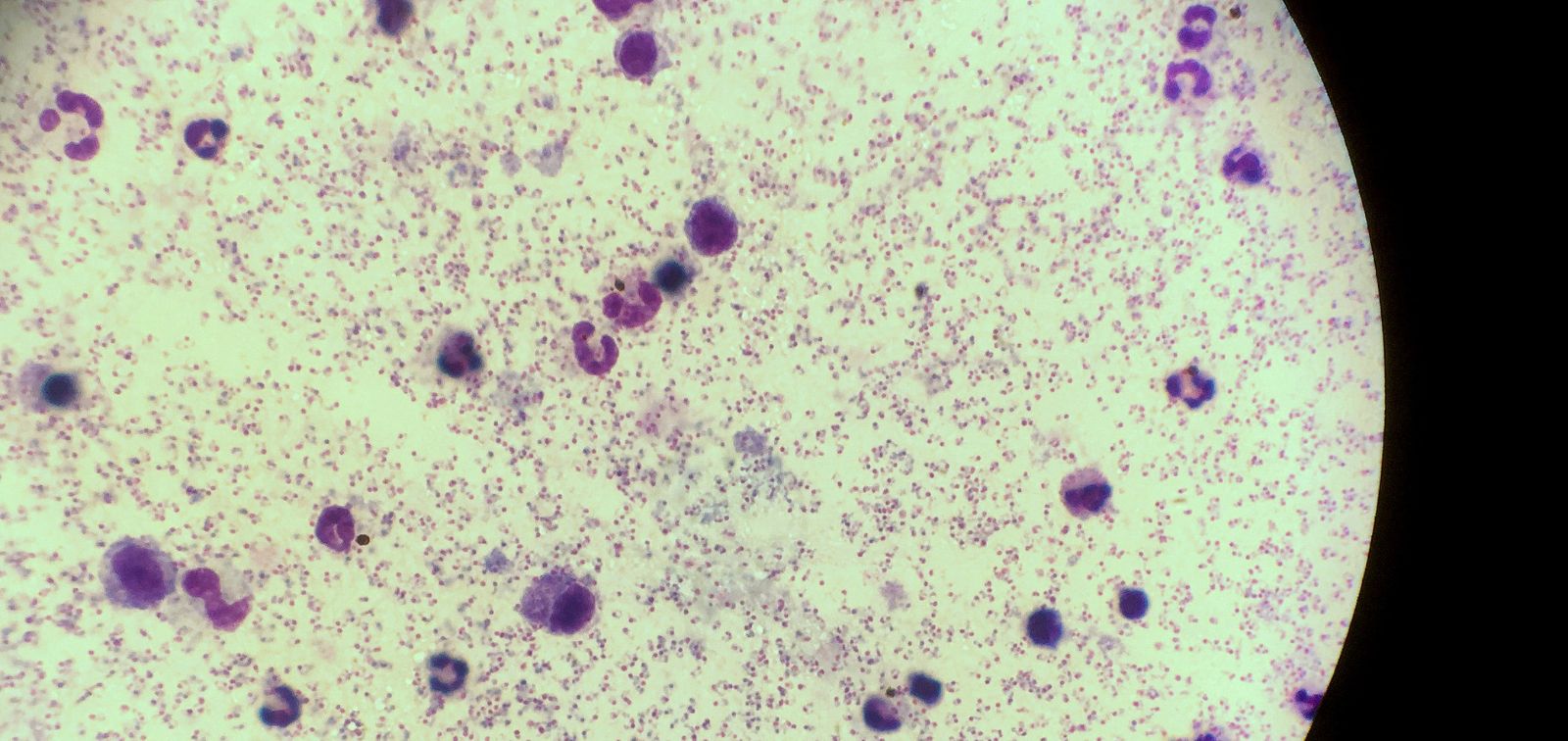RESPONSE
Mechanisms of the transcriptional responses to changes in the environment in the malaria parasite Plasmodium falciparum

- Duración
- 01/09/2023 - 31/08/2026
- Coordinador
- Alfred Cortés
- Financiadores
- Ministerio de Ciencia, Innovación y Universidades / Unión Europea / Agencia Estatal de Investigación (Ayuda PID2022-137863OB-I00)
The apicomplexan parasite Plasmodium falciparum causes the most severe forms of human malaria. Blood stages of the parasite, which include asexual parasites and sexual precursors called gametocytes, are responsible for all malaria clinical symptoms and for transmission to mosquitoes, respectively. As all organisms, P. falciparum needs to adapt to changes in the conditions of the environment where it lives. While the conditions of the human blood circulation are generally stable, there are some important fluctuations to which parasites need to adapt, using different strategies. Recent research from us and from others has demonstrated that P. falciparum produces protective transcriptional responses when exposed to heat shock mimicking malaria fever episodes (the most common symptom of clinical malaria), low levels of specific phospholipid precursors or drugs such as artemisinin. In the case of febrile temperatures, the parasite response involves transcriptional activation of an extremely compact set of chaperone-encoding genes regulated by the transcription factor PfAP2- HS. This response has similarities with the heat-shock response driven by the conserved eukaryotic transcription factor HSF1, which is absent from malaria parasites. In the case of low levels of phospholipid precursors or a pulse of artemisinin, the response involves activation of the expression of the chromatin regulator GDV1, which results in activation of the expression of the master regulator PfAP2-G and sexual conversion (e.g., conversion of asexual parasites into sexual gametocytes). However, many aspects of these two response pathways remain uncharacterized.
In this project:
- We will address the mechanisms by which parasites sense thermal stress, activate PfAP2-HS and increase transcription of its target genes.
- We will test the hypothesis that regulation of PfAP2-HS activation involves chaperone displacement and phosphorylation events, similar to regulation of HSF1.
- We will determine if proteotoxic conditions other than thermal stress, such as exposure to artemisinin, can trigger the PfAP2-HS-driven heat-shock response, and if this pathway plays an important role in artemisinin resistance.
- We will characterize the proteomic changes that occur during heat shock and investigate the alterations in nuclear organization and chromosomal contacts associated with the heat-shock response, and the role of different PfAP2-HS domains in these processes.
With these experiments,:
- We will gain mechanistic insight on the different steps of the P. falciparum response to febrile temperatures, from sensing to transcriptional activation of target genes.
- We will investigate the mechanism of gdv1 activation under different environmental conditions.
- We will test the hypothesis that different conditions that enhance sexual conversion rates result in common changes in specific metabolites that affect heterochromatin at the gdv1 locus.
- We will characterize activation of the gdv1 locus, which encodes the gdv1 mRNA and a regulatory antisense RNA, at the single-cell level and test the involvement of changes in chromosome contacts in the activation mechanism.
Altogether, with this project we expect to gain important mechanistic insight on the regulation of the two main transcriptional responses described so far in P. falciparum, which enable parasite adaptation and survival under two common conditions of its environment.
Total Fuding
475.000,00 €
Nuestro equipo
Coordinator
-
 Alfred Cortés ICREA Research Professor
Alfred Cortés ICREA Research Professor
ISGlobal Team
-
 Elisabet Tintó Research Assistant
Elisabet Tintó Research Assistant -
Maria Ribera Técnica de laboratorio
-
 LUCAS ALBERTO MICHEL Bioestadistico
LUCAS ALBERTO MICHEL Bioestadistico -
 Alba Pérez Investigadora posdoctoral
Alba Pérez Investigadora posdoctoral
Otros proyectos
Ver proyectos pasadosNHEPACHA
Nuevas Herramientas para el Diagnóstico y la Evaluación del Paciente con Enfermedad de Chagas
Estudio inmunológico de la vacuna RTS,S
Estudio de correlatos de protección frente a la malaria después de la vacunación con RTS,S/AS01E: Una evaluación inmunológica exhaustiva en el ensayo clínico de Fase III, doble ciego, aleatorizado, multicéntrico con un grupo control
Euroleish.net
Control of Leishmaniasis. From bench to bedside and community
GREPIMER
Grup de recerca en patología importada i malaties emergents i re-emergents
TESEO
Nuevos regímenes de quimioterapia y biomarcadores para la enfermedad de Chagas
ASINTMAL
Unravelling Disease Tolerance and Host Resistance in Afebrile 'P. falciparum' Infections: a Prospective Study in Mozambican Adults
ADAM
Administración masiva y focal de fármacos antimaláricos para avanzar hacia la eliminación de la malaria en Mozambique: acelerando la implementación de programas y políticas
Science4Pandemics
Citizens engagement digital platform for collective intelligence in pandemics
HIDDENVIVAX
Novel organ-on-a-chip technology to study extracellular vesicles-mediated cryptic infections in Plasmodium vivax malaria
Subclinical Infections in Children and Long Term Health Effects
Infection acquisition in early life and health outcomes in childhood - MARATO TV3
Herramienta innovadora de detección de enfermedades y vacunación a población inmigrante en riesgo en España
Project Code: PI21/00651
Impacto de las coinfecciones en el balance de respuestas de anticuerpos y linfocitos T helper a antígenos diana de inmunidad natural y vacunal frente a patógenos humanos prominentes
Project Code: PI20/00866
EpiGen
Building Scalable Pathogen Genomic Epidemiology in Ethiopia
MalTransc
Transcriptional regulation of adaptation and developmental decisions in malaria parasites: from epigenetic variation to directed transcriptional responses
BOHEMIA
Broad One Health Endectocide-based Malaria Intervention in Africa
VivaxEVTalk
Extracellular Vesicles as Intercellular Communicators and Biomarkers of Cryptic Erythrocytic Infections in Plasmodium vivax malaria
VaMonoS
Unravelling the heterogoneity and function of monocytes in vaccination and immunity to malaria
CLIMSOCTRYPBOL
Insight on climate and social participatory research for integral management of vectorborne zoonosis caused by Trypanosoma cruzi and Leishmania spp. in the Bolivian Gran Chaco.
SexMal
Social affairs and sex in P. falciparum: implications for malaria elimination
MENA Migrant Health
Transforming data collection and surveillance to drive migrant health research, care and policy
MESA
La Alianza Científica para la Erradicación de la Malaria (MESA) tiene como objetivo avanzar en la ciencia de la erradicación de la malaria.
SMART
Identifying Severe Malaria with a new Aptamer-based Rapid diagnostic Test
GlycoTargets
Nuevas terapias antimaláricas dirigidas contra las vías de glicosilación de 'Plasmodium falciparum'
GenMoz
P. falciparum genomic intelligence in Mozambique




